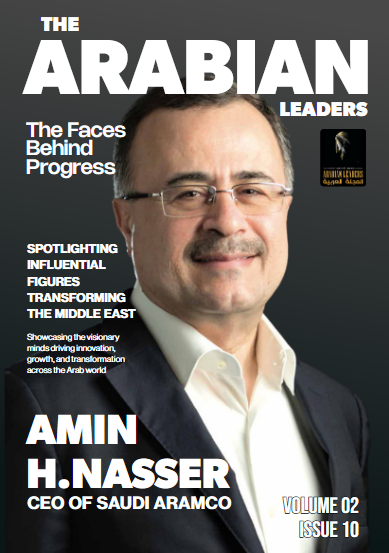Yahya Amqassim: A Literary Diplomat Bridging Saudi Arabia’s Past and Present
Introduction
Yahya Qasim Sabi, widely recognized by his Bareqi Arabic name, Yahya Amqassim (Arabic: يحيى أمقاسم), stands as a prominent figure in contemporary Saudi Arabian literature. Born in 1971, Amqassim has adeptly balanced his roles as a novelist and a diplomat, offering profound insights into Saudi society through his literary works while representing his nation on the international stage.
Early Life and Education
Amqassim’s formative years were shaped in Saudi Arabia, where he pursued higher education at King Saud University. His academic journey laid the foundation for a dual career path: one in the realm of literature and the other in diplomacy. His experiences and observations during these years would later permeate his writings, providing authentic narratives rooted in Saudi culture and history.
Diplomatic Endeavors
Parallel to his literary pursuits, Amqassim embarked on a diplomatic career, serving in Saudi embassies in Paris and Beirut. These assignments not only expanded his worldview but also enriched his literary perspective, allowing him to juxtapose Saudi traditions with global cultures. His diplomatic experiences have undoubtedly influenced his storytelling, infusing his narratives with a nuanced understanding of cross-cultural dynamics.
Literary Contributions
Stories from Saudi Arabia (2004)
Amqassim’s debut collection, Stories from Saudi Arabia, offers readers a tapestry of narratives that delve into the intricacies of Saudi life. Through a series of short stories, he captures the essence of everyday experiences, shedding light on societal norms, familial relationships, and the challenges of modernization. The collection serves as a mirror reflecting the multifaceted nature of Saudi society, resonating with readers both within and beyond the Kingdom.
Saq al-Ghurab (The Crow’s Leg, 2008)
In his subsequent novel, Saq al-Ghurab, Amqassim ventures into historical fiction, setting the narrative in the early 19th century during the First Saudi State. The story unfolds in the fictional village of Usayrah, a microcosm representing broader societal shifts. Through this setting, Amqassim explores themes of identity, tradition, and social transformation, offering a poignant commentary on the evolution of Saudi society. The novel’s rich tapestry of characters and events underscores the complexities of cultural heritage and the tensions between preservation and progress.
Recognition and Influence
Amqassim’s literary prowess garnered international attention when he was selected for the Beirut39 project in 2009–2010. This initiative recognized 39 of the most promising Arab writers under the age of 40, highlighting their contributions to contemporary literature. His inclusion in this esteemed group underscores his role in shaping modern Arabic narratives and his potential to influence future literary discourses.
Thematic Exploration
Central to Amqassim’s works is the exploration of identity and the interplay between tradition and modernity. His narratives often grapple with the challenges individuals face in reconciling cultural heritage with contemporary realities. By weaving historical contexts with personal stories, he provides readers with a lens to examine the evolving Saudi identity and the broader Arab experience.
Legacy and Continuing Impact
Yahya Amqassim’s dual roles as a writer and diplomat position him uniquely at the intersection of cultural introspection and international representation. His literary contributions offer invaluable insights into Saudi society’s complexities, while his diplomatic endeavors facilitate cross-cultural understanding. As Saudi Arabia continues to navigate its path in a globalized world, voices like Amqassim’s play a crucial role in articulating the nation’s narratives, challenges, and aspirations.
Between the Embassies and the Page: A Life of Dual Narratives
Yahya Amqassim’s life reads like one of his own short stories—rich in cultural layering and balanced at the axis of two worlds. His diplomatic assignments in cosmopolitan hubs like Paris and Beirut are not merely jobs; they serve as stages where cultural exchange, observation, and reflection are constant. While many authors isolate themselves from political spheres, Amqassim embraces the statecraft of diplomacy as an extension of his storytelling. His work doesn’t aim to escape the world; rather, it engages with it. This dual existence enables him to dissect human behavior and societal dynamics across different geographies.
Through this lens, his literature is not confined to a single nation’s psyche. Instead, it acts as a bridge between Saudi Arabia’s evolving social structures and the universality of human experience. His exposure to diverse cultures has sharpened his ability to juxtapose traditional Saudi life against modern global ideologies, which is evident in his narratives.
Reimagining History Through Fiction
In his acclaimed novel Saq al-Ghurab (The Crow’s Leg), Amqassim returns to a pivotal time in Saudi history: the early 1800s, when the First Saudi State was rising. Rather than creating a distant and didactic historical narrative, he breathes life into this era through vivid characters and the intricately imagined village of Usayrah. His historical fiction does not seek to glorify the past but to examine it critically.
Amqassim’s portrayal of history is not flat. He confronts the darker facets of the era—patriarchy, rigid social roles, and power dynamics—while also capturing moments of resistance, subtle rebellion, and emotional complexity. In doing so, he opens the door for readers to question and reinterpret Saudi history rather than accepting a single linear version of it.
This approach is radical within the conservative landscape of Arabic fiction, where history is often either sacred or sanitized. Amqassim humanizes the past, showing how the concerns of those who lived two centuries ago—identity, change, belonging—still echo in modern-day Saudi society.
Language as a Cultural Weapon
The Arabic language, with all its complexity, poetry, and emotion, serves as one of Amqassim’s most powerful tools. His writing is marked by lyrical prose and the use of regional dialects that ground his stories in their socio-cultural settings. By writing in Arabic and integrating Bareqi influences, Amqassim not only preserves local heritage but also defies the homogenization of culture in literature.
For non-Arabic speakers, much of Amqassim’s beauty may be lost in translation. However, the emotional core of his stories often transcends language. His translated works, including his inclusion in the Beirut39 anthology, have introduced his voice to a wider audience, enabling them to feel the texture of life in Saudi Arabia, even if the linguistic finesse is diluted.
His use of language also operates on another level: it serves as a mirror. Readers are invited to see themselves reflected in his characters, whether they are modern professionals, disillusioned youth, or elders clinging to tradition. Through language, he makes his world accessible, nuanced, and emotionally resonant.
Literary Resistance: Subtle but Sharp
Yahya Amqassim is not a polemicist; he does not raise a megaphone to criticize society or the government. His is a quieter form of resistance—one embedded in narrative choices, character development, and thematic framing. Whether he’s exploring the internal turmoil of a young Saudi man or the suffocating traditions of a rural village, Amqassim challenges readers to confront uncomfortable truths.
He doesn’t lecture; he reveals. And in a society where open criticism can often be met with consequences, this narrative subtlety becomes a powerful strategy. His work functions as a dialogue between generations—urging reflection, not rebellion. It is in these nuances that Amqassim carves his space as a literary force, whose resistance lies in representation and empathy rather than confrontation.
Cultural Preservation in an Era of Change
One of the defining qualities of Amqassim’s writing is his commitment to preserving the emotional and spiritual architecture of Saudi life. At a time when the country is undergoing rapid transformation under Vision 2030—with sweeping social reforms, increased global visibility, and youth-driven cultural shifts—Amqassim serves as both chronicler and critic.
His stories are time capsules, capturing the values, tensions, and quiet revolutions taking place in Saudi households and hearts. While many artists focus on the future, Amqassim reminds us that we carry our past into our modern identities. Through his works, he insists that cultural preservation doesn’t mean resisting change; it means understanding it from its roots.
The Unspoken and the Intimate
Perhaps what makes Yahya Amqassim’s literature so compelling is his ability to articulate the unspoken. He reveals what lies in silence—between husbands and wives, parents and children, the individual and society. These are spaces often ignored or left unexplored in mainstream narratives. His characters do not shout; they think, they endure, they ache—and this emotional honesty resonates.
Rather than presenting heroes and villains, Amqassim offers ambiguity. Life is complicated, and so are his characters. This complexity mirrors the real world and gives his stories a richness and depth that demands not just reading, but contemplation.
Conclusion: The Storyteller of a Changing Nation
Yahya Amqassim stands as one of Saudi Arabia’s most compelling literary voices—not because he shouts the loudest, but because he listens deeply. His stories do not chase the sensational; they pursue the sincere. In an era when Saudi literature is finding its global footing, Amqassim offers a rare balance: deeply rooted in local culture yet universally resonant. His quiet yet penetrating style has opened new doors for Arabic literature, offering narratives that capture both tradition and transformation with equal grace.
As both a diplomat and a writer, Amqassim bridges the worlds of formality and feeling. His experiences in global capitals like Paris and Beirut do not distance him from his Saudi heritage; they deepen his understanding of it. This dual identity allows him to write with both intimacy and insight—two qualities essential for any lasting literature.
Amqassim’s enduring value lies in his commitment to storytelling as a form of preservation, critique, and empathy. Whether reimagining the past in The Crow’s Leg or spotlighting contemporary tensions in his short stories, he crafts narratives that speak to the soul of a nation still finding its voice.
In many ways, Yahya Amqassim is not just a writer from Saudi Arabia—he is a writer for Saudi Arabia. Through his elegant prose, layered characters, and cultural sensibilities, he has contributed to shaping a new literary consciousness. His work is a quiet revolution, urging readers—inside and outside the Kingdom—to reflect more deeply on the stories that define us, challenge us, and ultimately connect us.








